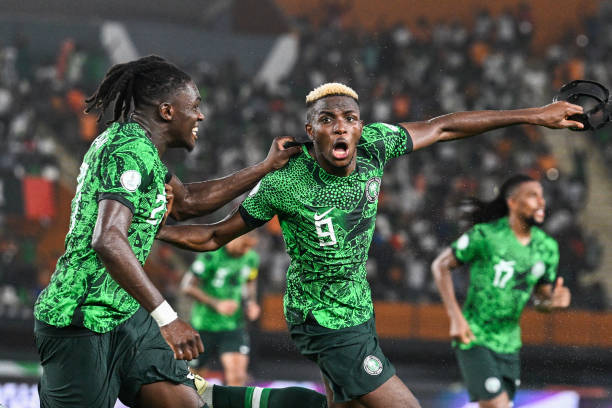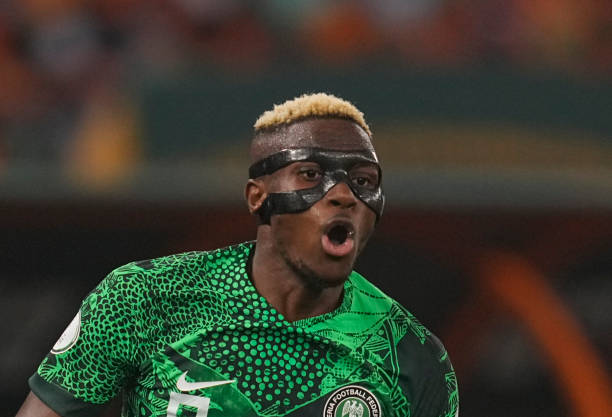As the world gears up for the 2026 FIFA World Cup, national teams are already drawing up strategies, evaluating their squads, and strengthening weak links. For Nigeria, a footballing powerhouse in Africa with a rich World Cup history, the upcoming qualifiers offer not just an opportunity to secure a place at the global stage, but also a critical moment of self-evaluation. The road to redemption after the 2022 World Cup miss is more than a matter of tactics or training; it is a test of long-term planning, institutional competence, and national sporting identity.
Betting Markets and Global Focus
Nigeria’s participation in the qualifiers has also attracted attention in the betting industry. As the global sports betting landscape expands, particularly with the integration of mobile platforms, markets surrounding the Super Eagles 2026 journey are gaining traction. For instance, platforms such as New Jersey sportsbooks are already preparing odds on upcoming African qualifiers, highlighting Nigeria’s continued relevance in global football narratives. It is important to approach such content with an awareness of betting’s influence and to underscore the value of resources like RG (Responsible Gambling), which advocate informed and mindful wagering practices.
Defensive Instability: A Core Concern
In previous campaigns, defensive lapses have been a recurring issue. Nigeria has struggled with maintaining consistent back-line discipline, often conceding goals through set-pieces and transitional plays. For World Cup qualification, defensive organization must be a priority. This entails not only refining player positioning and situational awareness but also fostering a cohesive defensive unit that can adapt to different playing styles.
Goalkeeping: A Position in Flux
Nigeria’s goalkeeping department remains unsettled. While talent exists, the lack of a clear first-choice keeper has hindered confidence among defenders and fans alike. Rotational policies, late call-ups, and lack of international exposure contribute to instability. Establishing a reliable, in-form goalkeeper early in the qualifying cycle could be pivotal in tight matches.
Tactical Identity and Coaching Structure
One of the most debated subjects in Nigerian football is the team’s tactical identity. Over the past decade, shifts in coaching personnel have led to inconsistent play styles and confusion on the pitch. There is a need for a unified philosophy, one that suits the current generation of players. Equally crucial is investing in coaching continuity and supporting technical staff with modern analytical tools and scouting infrastructure.
Youth Integration Versus Experience
Balancing youth and experience will be a critical task. Nigeria’s football talent pipeline is robust, with many players making waves in European leagues. However, integrating them effectively without sidelining seasoned professionals requires careful management. Youth provides energy and unpredictability, while veterans bring composure and leadership. A blended approach should be considered, based on form and positional needs rather than age alone.
Midfield Control: The Engine Room Dilemma
The midfield has often been caught between defensive duties and creative responsibilities. For successful qualification, Nigeria must develop a midfield capable of dictating tempo, controlling possession, and transitioning effectively between attack and defense. This could involve grooming playmakers with deep-lying capabilities or partnering physical presence with flair players.
Infrastructure and Preparation: Beyond the Pitch
Physical talent alone cannot carry a team through World Cup qualifiers. Nigeria must invest in sports science, medical teams, training facilities, and logistical planning. Travel mishaps and substandard accommodations have previously affected player morale and performance. The Nigerian Football Federation (NFF) has an administrative responsibility to ensure that technical quality is matched by operational efficiency.
Fan Expectations and Media Pressure
Public sentiment around the Super Eagles can swing drastically. High expectations, often fueled by media narratives, create pressure on players and staff alike. Managing this ecosystem will be essential. Transparency in decision-making, regular communication from coaching staff, and realistic public targets can help reduce volatility and improve morale.
The Role of International Friendlies and AFCON
Nigeria should approach international friendlies and the Africa Cup of Nations (AFCON) as critical rehearsal platforms. These tournaments offer more than competitive action; they provide insight into player compatibility, tactical setups, and psychological resilience under pressure. A deliberate schedule of high-quality opponents can serve as an ideal testing ground ahead of the World Cup qualifiers.
Data, Analytics, and Football Intelligence
Modern football increasingly relies on data-driven decisions. Nigeria has yet to fully adopt analytics at the national level. Incorporating performance metrics, heat maps, and opponent analysis can enhance strategic preparation. Whether in player selection or match-day tactics, informed decisions rooted in data will yield better outcomes than intuition alone.
The Betting Perspective: Economic Impact and Oversight
The growing convergence of betting and football raises important discussions. While markets such as Nigeria World Cup qualifiers attract attention, they also require oversight. The betting economy surrounding major tournaments can influence public behavior and athlete scrutiny. Responsible Gambling initiatives (such as RG) aim to create balance—providing frameworks to educate, monitor, and mitigate harm while supporting personal agency. Media outlets and football associations have a role to play in promoting these standards.

Conclusion: Building a Roadmap to 2026
Qualifying for the FIFA World Cup is never guaranteed. For Nigeria, it is not just about earning a spot in the final tournament, but proving that it can compete with consistency, professionalism, and identity. The road to the Super Eagles 2026 journey is paved with challenges, but also opportunities to evolve the sport nationally. Addressing structural, tactical, and psychological dimensions will be essential if Nigeria is to meet its ambitions and affirm its place among global footballing nations.



